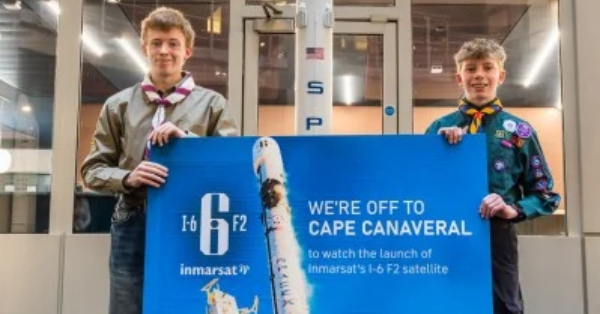16-year-old Simon Shemetilo, from Tower Hamlets, and 14-year-old Craig Alexander, from Reading, will have VIP access to the launch of Inmarsat’s latest communications satellite from Cape Canaveral, Florida, next February
Simon and Craig were chosen as the two winners against hundreds of entrants for their answers to the question ‘How do you think satellites in space will help improve life on Earth in the future?’ Scouts supports young people to develop skills for life. Craig and Simon used those skills to develop their competition entries.
Simon and Craig’s winning entries were judged by Scouts’ Ambassador and world-famous astronaut Tim Peake, who praised the teenagers’ technical knowledge and creativity.
“We were incredibly impressed by the overall quality of entries, but these two really caught our eye. They used their Scout skills to develop their ideas to reduce the environmental impact of data storage by building a ‘space cloud web’ and harness clean solar energy from satellites. That is exactly the kind of ingenuity and innovation we need for the future of space.”
Scouts from all over the UK entered the competition, with many entries focusing on how space can help care for the planet. Judges were particularly wowed with the advanced level of knowledge about space, satellites, and the possibilities of future innovation on show.
During the five-day trip, Simon and Craig will tour NASA’s Kennedy Space Center and watch the launch of Inmarsat’s latest I-6 F2 spacecraft – the most sophisticated commercial communications satellite ever built – with VIPs.
The company is launching the satellite to upgrade its global communications services and build its revolutionary network of the future, ORCHESTRA. The network will provide communications across land, sea, and air in the future and support futuristic technologies like flying taxis and uncrewed aerial vehicles.






































